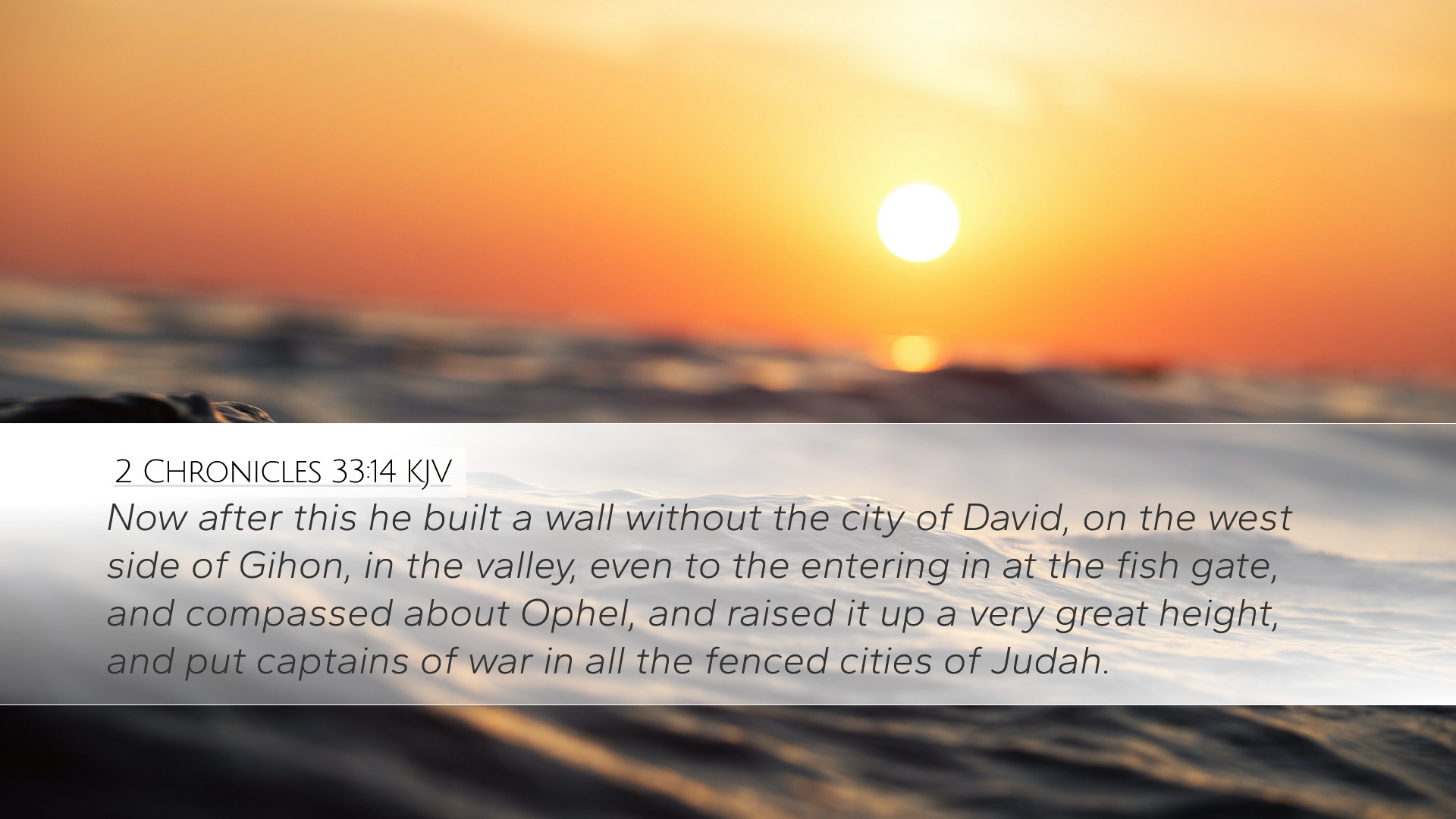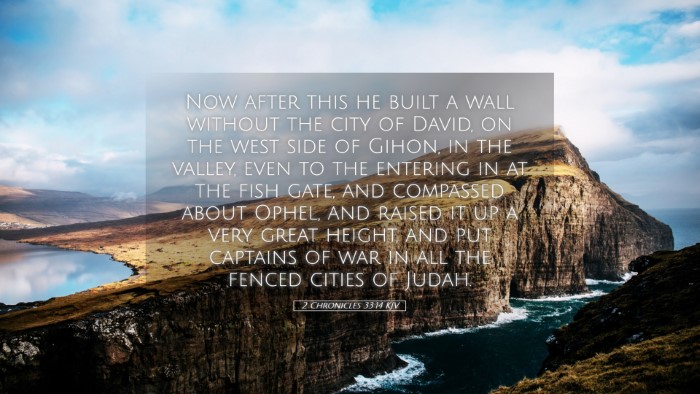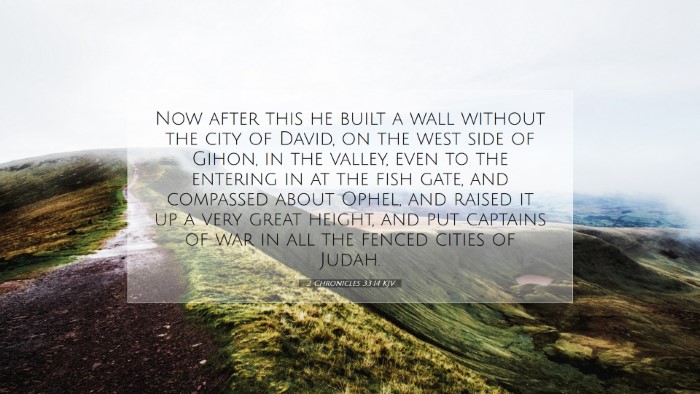Commentary on 2 Chronicles 33:14
Verse Overview: 2 Chronicles 33:14 reads: “Now after this he built a wall without the city of David, on the west side of Gihon, in the valley, and even to the entering in at the fish gate, and compassed about Ophel, and raised it up a very great height, and put captains of war in all the fenced cities of Judah.” This verse marks a significant moment in the reign of King Manasseh, highlighting both his actions and the broader implications for the Kingdom of Judah.
Historical Context
King Manasseh of Judah ruled for fifty-five years and is often remembered for his idolatrous practices and leading the people away from the worship of Yahweh. However, following his captivity in Babylon, he experienced a dramatic transformation and sought to restore proper worship in Jerusalem. This verse describes the fortification of Jerusalem and reflects a period of restoration and security following his repentance.
The Significance of the Wall
Protective Measures: The act of building a wall around the city signifies Manasseh’s intentions to secure Judah against external threats. As noted by Matthew Henry, this was not just a physical barrier but also an emblem of Manasseh’s turn back to God and the restoration of national integrity.
Spiritual Restoration: The rebuilding of the wall parallels the spiritual rebuilding that occurred in Manasseh’s heart. Albert Barnes emphasizes that when a leader genuinely repents, their actions must reflect this change, implying that the physical restoration of Jerusalem was a manifestation of inner transformation.
The Locations Mentioned
- The Gihon Spring: The Gihon spring was a critical source of water for the city and is also referenced in other historical narratives. The fortification around this area underscored the importance of protecting vital resources.
- The Fish Gate: This gate was part of Jerusalem's defensive structure and indicates economic activities (fishing) that were vital to the city's livelihood. Adam Clarke remarks that securing access points like the Fish Gate would guard against invasions.
- Ophel: The term ‘Ophel’ refers to the elevated area on the southeast part of Jerusalem, which provided strategic advantages for defense and surveillance of approaching enemies.
The Captains of War
By appointing captains of war in the fenced cities, Manasseh ensured a well-organized defense against possible invasions, which signifies wise leadership. Albert Barnes asserts that effective leadership is characterized by prudence and preparation for the uncertainties of warfare, reflecting the importance of vigilance in spiritual leadership as well.
Theological Implications
This verse offers profound insights into the themes of repentance, restoration, and divine mercy. Manasseh’s story is a powerful testament to the grace available to those who turn back to God, regardless of their past. Matthew Henry observes that no one is beyond the reach of God’s forgiveness and the possibility of renewal.
Moreover, the action of fortifying Jerusalem represents not only physical security but also a deeper spiritual commitment to God. Adam Clarke highlights that as believers, our own spiritual fortifications involve diligent prayer, studying Scripture, and surrounding ourselves with strong leaders who guide us in faith.
Application for Today
For pastors, students, and scholars, the narrative of Manasseh invites reflection on the role of leadership in spiritual restoration. Just as Manasseh built walls to protect his people, churches today are called to build up spiritual defenses against modern challenges, including secularism, moral decay, and spiritual apathy.
Moreover, the grace extended to Manasseh serves as a reminder that true transformation is always possible—no matter how far one has strayed. We are encouraged to embrace the realities of repentance and the hope of restoration, knowing that God’s mercy transcends our limitations.
Conclusion
2 Chronicles 33:14 serves as a crucial lesson in the themes of leadership, repentance, and restoration both for Manasseh and for contemporary believers. The building of Jerusalem’s wall illustrates the importance of spiritual and moral fortitude in the face of external and internal struggles. As we reflect on these insights, let us commit to not only fortifying our lives but also leading others towards genuine transformation through Christ.


